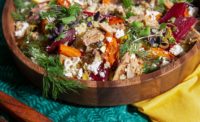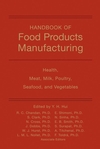Aquamar, a manufacturer of surimi in North America, is embarking on a brand overhaul to celebrate the long under-touted advantages of Wild Caught Alaska Pollock.
Pollock achieved increased market scale in the 1980s as more accessible forms of fish fillets and imitation crab meat, due to its light texture, mild flavor, versatility, and low price point. However, as the industry and consumers become savvier to the “deeper” benefits of seafood and protein sources from a planet perspective, Wild Caught Alaska Pollock is emerging as being on par with plant-based meat alternatives.
“It’s high time that we know and celebrate Wild Caught Alaska Pollock by its name,” noted Daryl Gormley, CEO of Aquamar. “Pollock is a plentiful, high-quality, nutrient dense fish harvested from carefully managed fisheries, which is why it has always carried great price point. Abundance is one of several important factors in the sustainable equation. As a company, we will be bringing this incredible fish out of the shadows, celebrating current applications—such as fish filets, fish sticks, and surimi—well as future opportunities like salad toppers and ceviche that feature pollock front and center.”
This year, a lengthy life cycle assessment conducted on behalf of the Association of Genuine Alaska Pollock Producers found that Wild Alaska Pollock is one of the most climate-friendly proteins in the world based on several key impact categories such as global warming potential, energy use, use of land and water resources and waste outputs. Alaska pollock fishing protocols apply midwater, cone shape trawlers, which are considered one of the cleanest considering the incidental catch of other species (less than 1 percent).
Like salmon, tuna, and cod, Wild Alaska Pollock is a good source of lean protein, vitamin B12, phosphorous and selenium as well as low in saturated fat. However, unlike the larger fish counterparts, pollock is in the low-risk category for environmental toxins, such as mercury and pesticides.
“There is an important paradigm shift in the way we are valuing foods,” added Gormley. “Protein is showing to be key factor in diets that focus on health and weight management. Also, what’s best for the planet is often what’s best for the body. Seafood that is small, abundant, and wild-caught in cold waters with well managed fishing oversight is the gold standard. Alaska pollock hits all those marks. Bonus: it’s also really tasty and adaptable to a myriad of recipes and food preparations.”
Aquamar products are certified by SQF, BRCGS Food Safety, Sustainable Seafood MSC, and Ocean Wise.
Source: Aquamar









